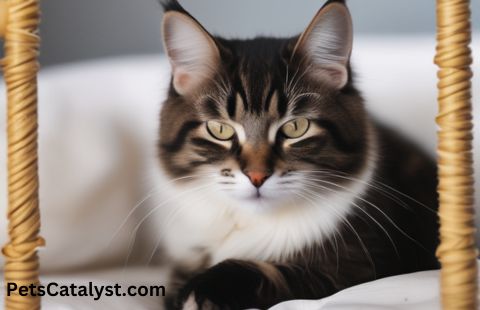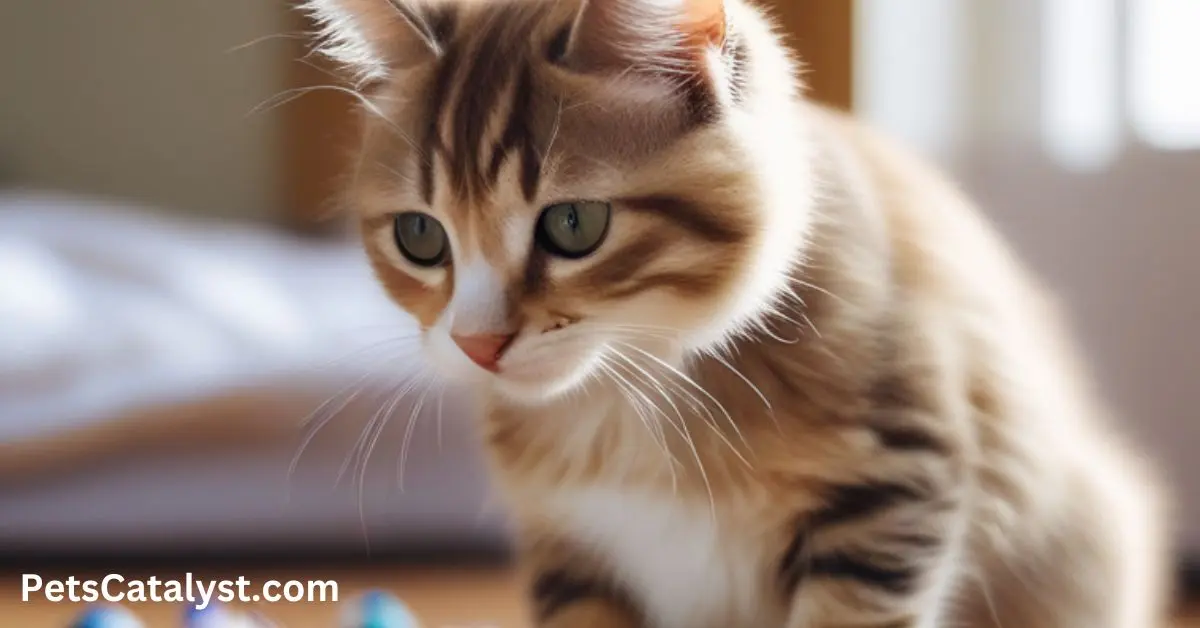Why is my cat so tiny? As a pet parent to two dogs, one turtle, and one cat, I’ve noticed that cats come in all shapes and sizes, but what if your feline seems tinier than the rest? Should I be concerned about it, or is this normal? Let’s explore the possible reasons for your cat’s size and whether there’s a cause for concern.
Possible Reasons for a Small Cat
If your cat appears smaller, there could be quite a number of reasons to that. Most of the reasons fall under the ‘normal’ category, some of them will need you to put some focus. Here are the most common causes:

Genetics and Breed Factors
Some cats are naturally small because of their genetics reason. There are some breeds like Singapura, Munchkin and many others are known for their small size. If your cat is of purebred or of one of these breeds, their small size will be genetic in nature. Oh no, that’s not all, their small and cute appearances are the best part of their charm.
Nutritional Deficiencies
Cats fed with poor diets during their early stages of development can stunt your cat’s growth. It really can affect a cat and limit its size if your cat did not get the proper nutrients during those crucial growth periods. That means it is very essential to provide food rich in nutrients that support proper development.
Health Conditions
Some health problems, such as parasites or hormonal imbalances like hyperthyroidism, can affect a cat’s growth. These issues prevent your cat from absorbing nutrients properly, leaving them smaller than expected.
Late Growth Spurts
Worse still, not all cats experience the same rate of growth. There are some cats that come to their adult size a bit slower than others would. When there’s a lull in growth, it’s just beyond the adolescent stage and perhaps your cat is just growing slow but steady just like most humans do.
When to Be Concerned About Your Cat’s Size
Some cats are naturally small, but sometimes a tiny size could mean something’s wrong. Here are a few signs that should make you concerned.

Not Hitting Growth Milestones
Kittens are very fast growers in the first six months of their lives. For example, if your cat does not put on weight or develops differently than other kittens, there is probably something wrong. Most cats reach their adult size by the time they are 12 to 18 months so any signs of slow development should be investigated.
Signs of Poor Health
If your small cat looks lethargic, is not eating properly, her fur looks awful, or if the cat is vomiting, then the cat has to be taken to the veterinarian. These can indicate various severe illnesses, such as worms or other diseases, thyroid problems, or a lack of nutrients, which start affecting their size.
Underweight Despite Good Diet
However, there are times when your cat consumes food and is able to play as well, but remains small or underweight there could be a health issue that prevents your cat from absorbing the nutrients needed. It could be that they are wormy or have some disorders in their stomachs and you should get the vet to take a look at them.
Sudden Change in Growth Pattern
If your cat suddenly stops growing or seems to get smaller, that’s a warning sign. Quick changes in weight or size, especially in young cats, can mean hormonal problems or illnesses that need to be checked out right away.
How to Help Your Tiny Cat Grow or Stay Healthy
1. Balanced Diet: To help your small cat grow and stay healthy, focus on what they eat. Cats need a diet full of good proteins and important nutrients. If your cat has special health needs, don’t hesitate to ask your vet for advice on the right food. Do not feed them with lots of food in the hope that they will grow big. It is essential to ensure the quality of the food than quantity.
2. Regular Vet Visits: It also does not matter how much your cat is small or big from the neighborhood, just keep it in your mind they need to be taken to the veterinary doctor regularly. A vet will be able to perform tests for worms, thyroid issues, and other diseases that might be causing your cat not to grow. There is nothing wrong with getting help when your vet has pointed out a concerning issue.
3. Exercise and Mental Stimulation: A healthy cat is not just about the size but it’s all about how healthy it is. Your cat needs to be very active as well as engage in activities that will challenge his or her mind. Daily playing is beneficial for the cat and should be carved out as a part of the kitten’s daily routine. It also a good idea also to provide fun toys such as balls or feather wands in order to push them to run or jump. Puzzle toys that hide treats can also challenge their minds and keep them sharp.
You May Also Like to Read:
FAQs on Why Is My Cat So Tiny?
Is my cat’s small size related to its breed?
Of course, it is somewhat true that the size of the cat will tell the tale of its breed. We have those cat that are naturally small breeds like the Singapura and the Munchkin. Nothing to worry about if you have one of these.
Can a cat be small but healthy?
Even a small cat can be healthy. Don’t think that your cat is unhealthy because it is small and cannot really stand up. However, you need to regularly take the cat to the veterinarian, and feed it on good food, and another thing is to make the cat as active as possible.
When should I bring my small cat for vet?
If your cat’s size is related to issues like lethargy, lack of appetite, or a poor-quality coat, you must take him or her to the vet. However, it’s crucial for your cat to be checked by the vet regularly, even if there are no signs like these.
References:
So, Why Is My Cat So Tiny? But sometimes it is caused by their breed or if they are growing slowly. However care must be taken to see whether there are any deficiencies or health disorders relating to the growth of the cat. Cats must therefore be taken through decent feeding, deserves care and must be taken for vet services from time to time. If you do these things, your little cat will be happy and healthy! And really, who doesn’t love a cute, cuddly little cat?










